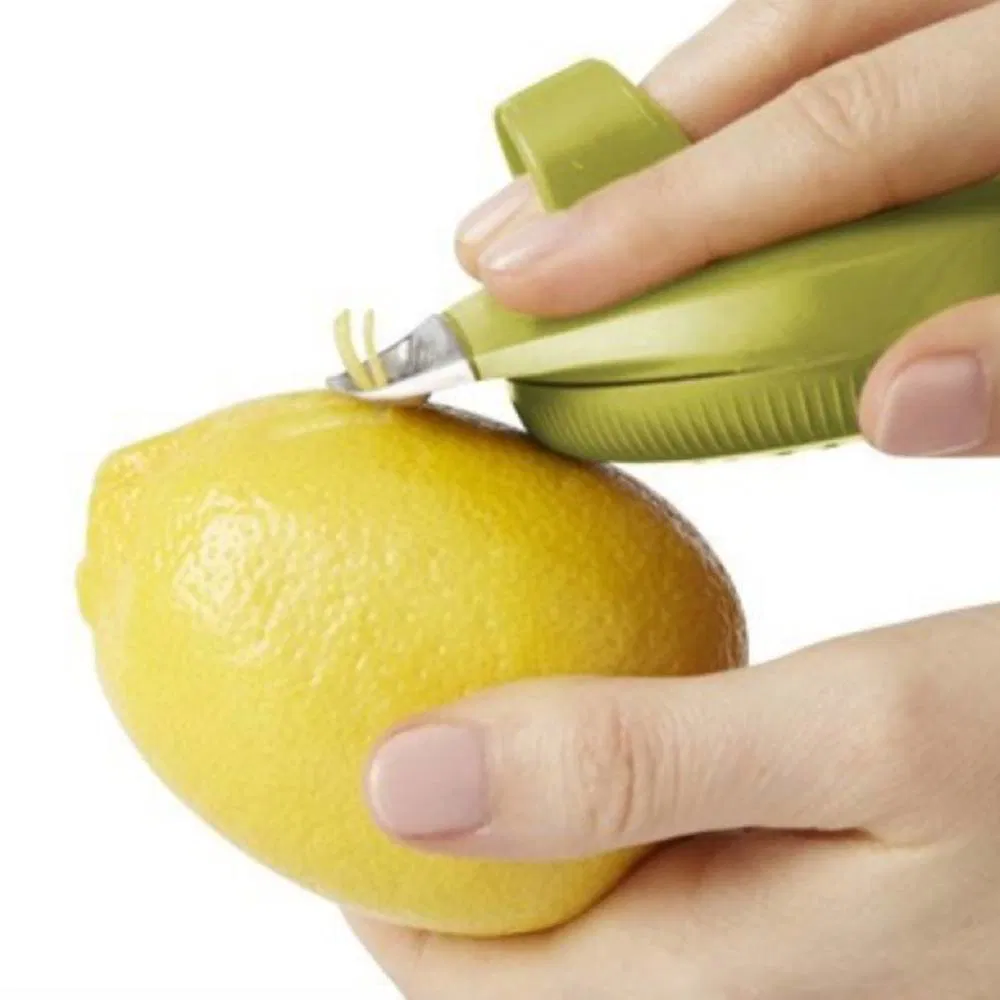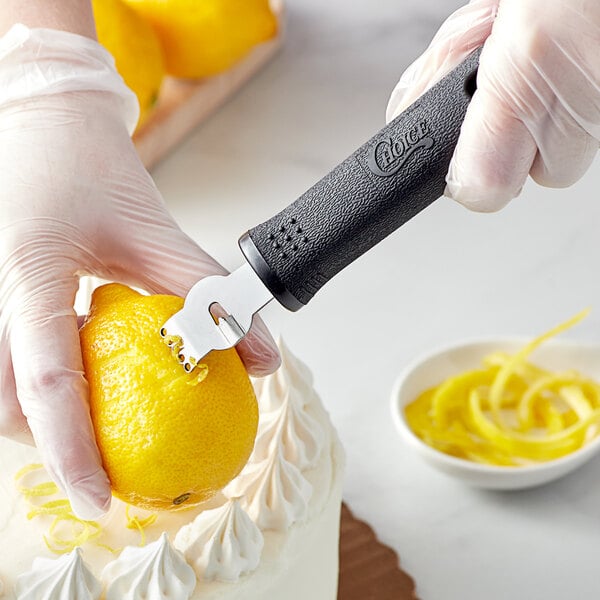Introduction
Lemon zester tools are a must-have kitchen gadget for any home cook or professional chef. These handy tools are used to remove the flavorful zest from citrus fruits, such as lemons, limes, and oranges, and are a great addition to any kitchen arsenal. In this comprehensive guide, we will explore the different types of lemon zesters available, how to choose the right one for your needs, how to use it effectively, and how to maintain and care for your zester to ensure its longevity.
Part 1: Types of Lemon Zesters
Level 1: Overview of Lemon Zesters
There are several different types of lemon zesters available on the market, each with its own unique features and benefits. From classic handheld zesters to multi-functional zester-graters, there is a tool to suit every preference and cooking style.
Level 2: Comparison of Different Zester Types
We will compare and contrast the various types of lemon zesters, including handheld zesters, box zesters, and multi-purpose zester-graters. We will discuss the pros and cons of each type and provide recommendations for different uses and preferences.
Part 2: How to Choose the Right Lemon Zester
Level 1: Factors to Consider When Choosing a Lemon Zester
When selecting a lemon zester, there are several important factors to consider, such as the type of citrus fruits you will be zesting, your preferred zesting method, and your budget. We will explore each of these factors in detail to help you make an informed decision.
Level 2: Tips for Choosing the Best Lemon Zester
We will provide practical tips for choosing the best lemon zester, including reading customer reviews, testing the zester in-store, and considering the material and construction of the zester.
Part 3: How to Use a Lemon Zester
Level 1: Basic Zesting Techniques
We will cover the basic techniques for using a lemon zester, including how to hold the zester, how to remove the zest from the fruit, and how to avoid zesting the bitter white pith.
Level 2: Advanced Zesting Methods
For more advanced users, we will explore additional zesting methods, such as using a microplane grater for finely grated zest or using a channel knife for decorative citrus twists. We will also discuss tips for zesting large quantities of citrus fruits efficiently.
Part 4: Maintaining Your Lemon Zester
Level 1: Cleaning and Care Tips
Proper maintenance is essential for keeping your lemon zester in top condition. We will provide step-by-step instructions for cleaning and caring for your zester to prevent rust and dullness and to prolong its lifespan.
Level 2: Storage and Safety Considerations
We will also discuss storage and safety considerations for your lemon zester, such as the best way to store and protect it when not in use, and why it’s important to handle it with care to avoid injury and damage.
Part 5: Creative Uses for Lemon Zesters
Level 1: Zesting Beyond Citrus Fruits
While lemon zesters are primarily designed for citrus fruits, they can also be used for other ingredients, including nutmeg, ginger, and chocolate. We will explore creative ways to use your zester for a variety of cooking and baking applications.
Level 2: Garnishing and Flavoring with Zest
In addition to traditional zesting, we will discuss how to use lemon zest as a garnish and flavoring agent for savory and sweet dishes. From adding a burst of citrus flavor to cocktails to enhancing the aroma of seafood and desserts, the possibilities are endless.
Part 6: Maintenance and Care of Your Lemon Zester Tool
To ensure that your lemon zester tool remains in top condition, it is important to properly maintain and clean it after use. After using the zester, it is best to rinse it under warm water and gently scrub it with a brush to remove any lingering citrus pulp or zest. Additionally, it is recommended to hand wash the zester with mild soap and water to remove any oils or residue. Avoid using harsh chemicals or abrasive materials that could damage the zester’s sharp edges or stainless steel surface.
To keep the zester sharp, you can also use a small brush to periodically clean out any trapped zest or pulp from the grating surface. Finally, make sure to dry the zester thoroughly before storing it to prevent any rust or corrosion from developing. With proper care and maintenance, your lemon zester tool can provide you with years of reliable use for all your citrus zesting needs.
Part 7: Using Your Lemon Zester Tool for Creative Cooking
Beyond simply zesting lemons, a lemon zester tool can be a versatile instrument in the kitchen for adding flavor and texture to a variety of dishes. In addition to lemons, this tool can also be used to zest limes, oranges, and other citrus fruits. The zest from these fruits can infuse flavor into sauces, dressings, marinades, and even baked goods. The fine, delicate strands of zest can add a bright, citrusy flavor to dishes without the bitterness that can come from using the pith.
Furthermore, the zester can create beautiful garnishes for cocktails, desserts, and savory dishes alike. By using the zester to create citrus curls or twists, you can add an elegant finishing touch to your culinary creations. You can also experiment with zesting other ingredients such as ginger, garlic, or nutmeg to add depth and complexity to your cooking. With a bit of creativity and experimentation, your lemon zester tool can become a valuable asset in your kitchen arsenal.
Part 8: The Convenience and Versatility of a Lemon Zester Tool
The convenience and versatility of a lemon zester tool make it an essential gadget for any home cook or professional chef. Beyond its primary function of zesting citrus fruits, a zester can also be used to finely grate hard cheeses, such as Parmesan or Pecorino, to add a burst of flavor to pasta, salads, and more. The fine grating surface of the zester is also ideal for grating fresh ginger, garlic, or nutmeg, allowing you to easily incorporate these aromatic ingredients into your dishes.
Moreover, the compact size and ergonomic design of many lemon zester tools make them easy to handle and store. With its small footprint, a zester can easily be tucked away in a kitchen drawer or hung on a utensil rack without taking up valuable counter space. Additionally, many models come with protective covers for the sharp grating surface, ensuring safe storage and preventing accidental cuts.
The versatility of a lemon zester tool also extends to its ability to create decorative garnishes for your culinary creations. By using the zester to create citrus curls or twists, you can add a visually appealing touch to cocktails, desserts, and savory dishes. The creative possibilities are endless with a lemon zester tool, making it a valuable addition to any kitchen.
Conclusion
Lemon zester tool are versatile and indispensable kitchen tools that can elevate your culinary creations to new heights. By understanding the different types of zesters, how to choose the right one, how to use it effectively, and how to maintain and care for it, you can unleash the full potential of this simple yet powerful gadget. Whether you’re a seasoned chef or a novice cook, a lemon zester is a game-changing addition to your kitchen that will enhance your cooking experience and impress your family and friends with fresh and vibrant citrus flavors.



